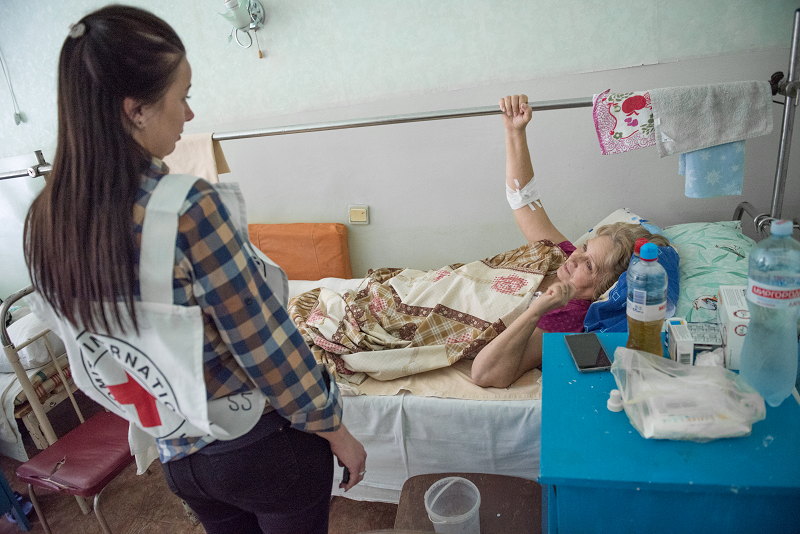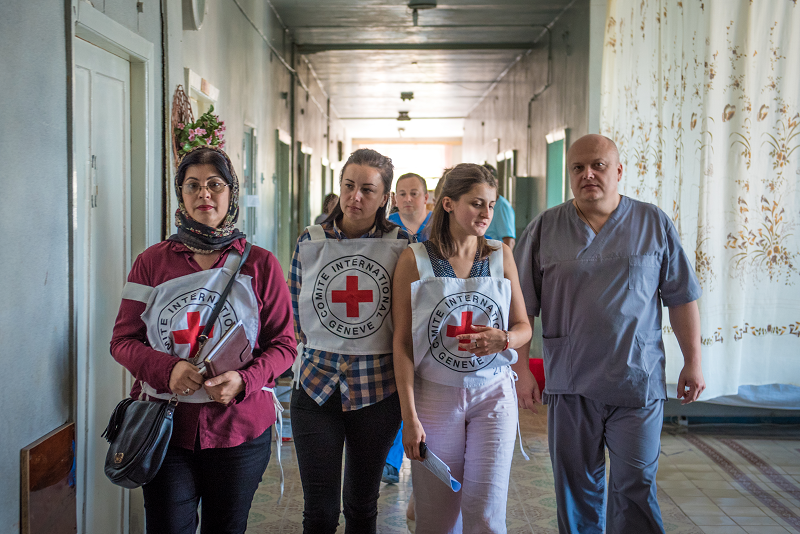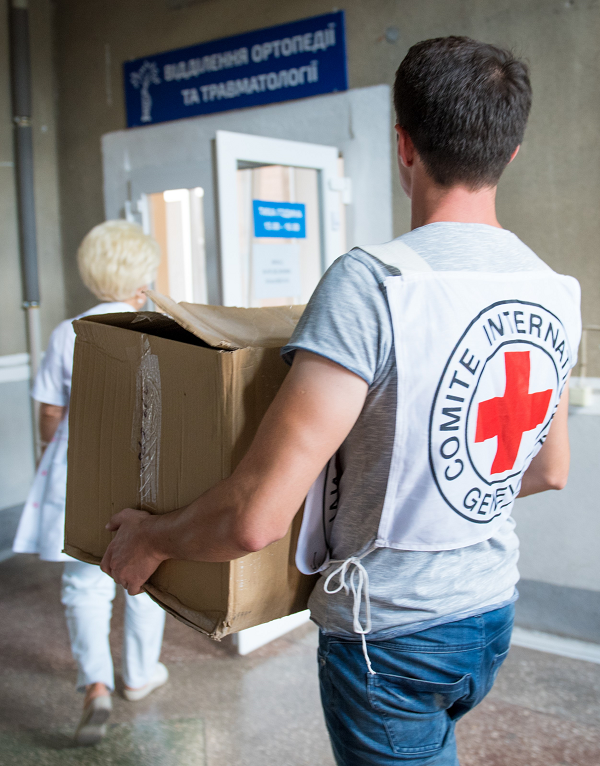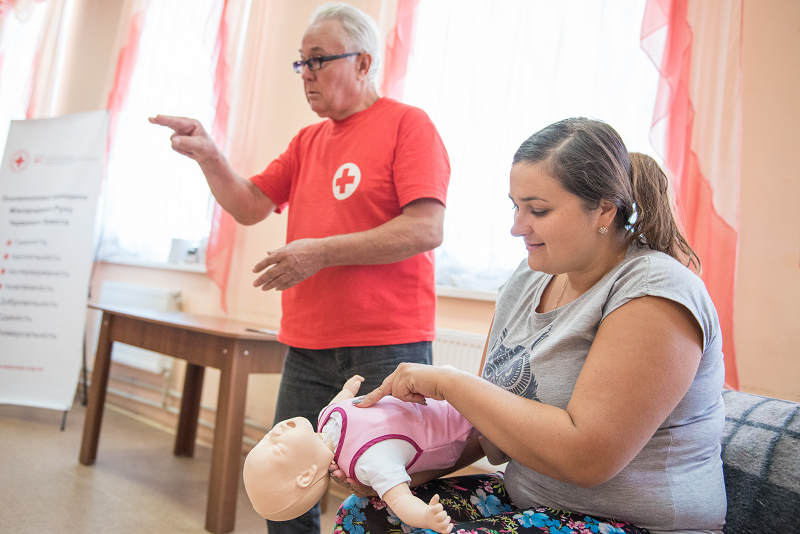What projects does the ICRC health department run?
The ICRC’s mandate in healthcare means, above all, assistance to the wounded, the field surgery. Therefore, one of our first programs, launched in 2014, aimed to help the hospitals that are located directly on the contact line and provide medical services to those wounded in the conflict. We provide these hospitals with basic medical supplies, consumables, equipment, and hospital furniture, so that surgeons can continue their work even under stressful conditions caused by the conflict. Nobody had expected the conflict, therefore medical services got under huge pressure. Our assistance helps them cope with difficult conditions and provide quality services.
What is the most interesting project for the department today?
The project in Bakhmut is unique for Ukraine. We are looking into a creation of an emergency department, which would be an entry point for all the hospital patients. Such departments have been operating in many countries for decades. It has been proven that, thanks to them, the mortality rate can be significantly reduced in case of mass patient intakes or extensive injuries. In such a department, the patient receives a comprehensive, multifunctional and multicomponent care from all respective doctors, who work according to a well-established protocol. This protocol has been elaborated for 60 years and helps prevent all life-threatening conditions. Alas, in an ordinary department, they may be missed, as the patient is seen by different specialists in a chaotic sequence.
Why did you select Bakhmut?
First of all, because of its close proximity to the contact line. Secondly, the Bakhmut hospital is a developing institution, designed to help 150,000 people. Thus, there is an opportunity to attract new or train existing specialists. After all, the goal of our project is not only to build the department and provide the necessary equipment, but also to introduce a system that would help increase patient survival. A key component of our project is the training of doctors and nurses in this protocol with its subsequent practical implementation. We are planning to involve a specialist, who would work on this together with the doctors of the Bakhmut hospital.
The assistance provided by emergency departments will comply with international protocols. In Ukraine, there are no departments like these yet. Therefore, the Bakhmut hospital will be able to set an example to other hospitals willing to bring their standards closer to the global level.
What is the timeline for this project?
Currently we are in the pre-project stage, which is the process of discussion and agreement. On average, such projects are implemented within up to five years. Everything will depend on how quickly the project stages will proceed.
What other programmes is your department running?
We are implementing a major programme aimed at helping the people suffering from chronic diseases, such as hypertension, asthma, chronic obstructive lung diseases, coronary heart disease, and diabetes. This programme has been fully functional since March 2017. It covers about 300,000 people living along the contact line. As part of the programme, we deliver medical supplies to institutions that provide primary medical care – clinics, rural health posts and outpatient clinics. Quarterly, we bring them a new batch of medications to fully support the patients who undergo regular medical check-ups in these medical institutions.
Our insulin supply program also deserves a mention. As part of it, we provide the necessary amount of insulin for the treatment of more than 11,000 patients with diabetes. We supply insulin in Donetsk and Luhansk. This is enough to cover the patients’ basic needs. We also provide insulin delivery devices – syringes and pen injectors, as well as blood glucose meters – devices for blood sugar measurement and control.
In addition to supplying drugs, this year, we have trained nurses and primary care physicians in protocols for basic life support and advanced resuscitation (BLS and ALS). These protocols allow medical personnel to quickly and efficiently stabilize a patient in a critical condition, provide timely assistance and save patient’s life. This year we have trained about 60 doctors and nurses as well as 45 non-medical personnel in the Donetsk and Luhansk regions.
Besides, we support blood transfusion centres in Donetsk and Luhansk with materials. We provide them with reagents for testing blood for HIV, hepatitis B and C, syphilis, as well as for determining blood types and sorting blood according to Rh factors. We also provide consumables for the preparation of blood products. The reagent kit we provide helps test more than 60 thousand blood samples per year. This is a vital program, because if the blood services stop, it may have irreversible effects.
Finally, we also organize first aid trainings. We hold them together with the Ukrainian Red Cross Society. Previously, we helped train the required number of instructors and trainers from the Ukrainian Red Cross Society. Now, with our support, they conduct first aid trainings in the Donetsk and Luhansk regions.




